
Ashley Yeager is the associate news editor at Science News. Previously, she worked at The Scientist, where she was an associate editor for nearly three years. She has also worked as a freelance editor and writer, and as a writer at the Simons Foundation, Duke University and the W.M. Keck Observatory. She was the web producer for Science News from 2013 to 2015, and was an intern at the magazine in the summer of 2008. She holds a bachelor’s degree in journalism from the University of Tennessee, Knoxville, and a master’s degree in science writing from MIT. Her book, Bright Galaxies, Dark Matter and Beyond, on the life of astronomer Vera Rubin, will be published by MIT Press in August.

Trustworthy journalism comes at a price.
Scientists and journalists share a core belief in questioning, observing and verifying to reach the truth. Science News reports on crucial research and discovery across science disciplines. We need your financial support to make it happen – every contribution makes a difference.
All Stories by Ashley Yeager
-
 Climate
ClimateTiny shells hint at hidden ocean warming
Pacific waters are heating up 15 times faster than in earlier eras.
-
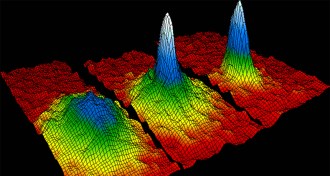 Quantum Physics
Quantum PhysicsElectron makes ultracold atoms move as one
Harnessing the strong particle-gas interaction is early step toward quantum optics applications.
-
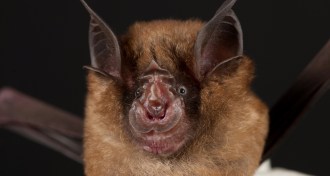 Health & Medicine
Health & MedicineEvidence mounts for bat origins of SARS
New viruses in the mammals closely match the human form of the infection.
-
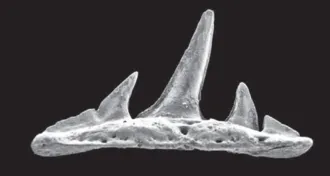 Paleontology
PaleontologyFossils suggest ancient sharks survived extinction event
Diving down deep in the ocean may have helped the fish live through the Great Dying 350 million years ago.
-
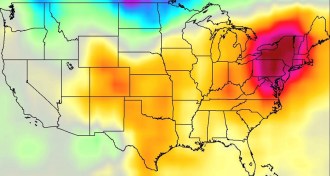 Earth
EarthPressure patterns could portend heat waves
High-pressure systems may help scientists forecast temperature hikes 15 to 20 days out.
-
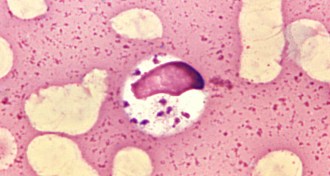 Environment
EnvironmentPolluted water interferes with drug that combats parasitic scourge
Arsenic contamination fuels resistance to one treatment for leishmaniasis.
-
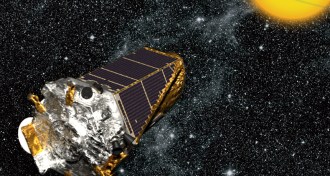 Astronomy
AstronomySolar system with seven planets discovered
Kepler data has identified a star with a seven-planet system structured similarly to the sun’s clutch of planets.
-
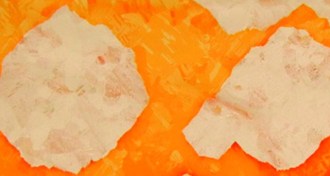 Chemistry
ChemistryOxygen shapes growth of graphene
The number of atoms on a copper surface changes the size and rate of the material's crystal development.
-

-
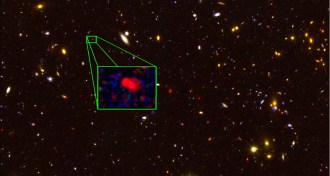 Astronomy
AstronomyMost distant galaxy discovered
Astronomers have observed a galaxy as it existed 700 million years after Big Bang.
-
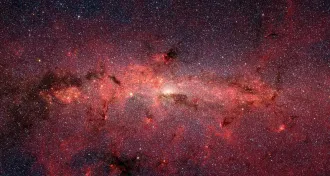
-
 Genetics
GeneticsDog clone genome nearly identical to donor DNA
The genetic material of Snuppy and of his donor, Tai, is nearly identical.